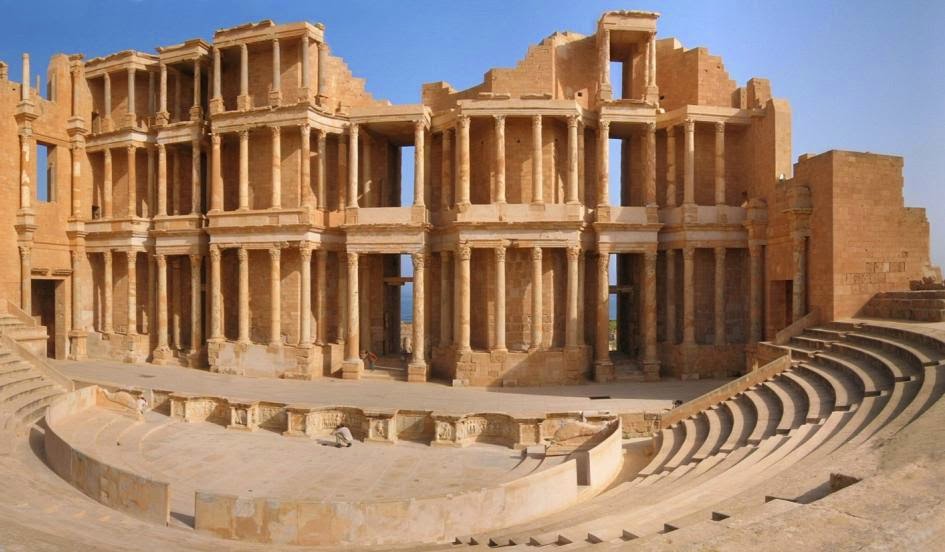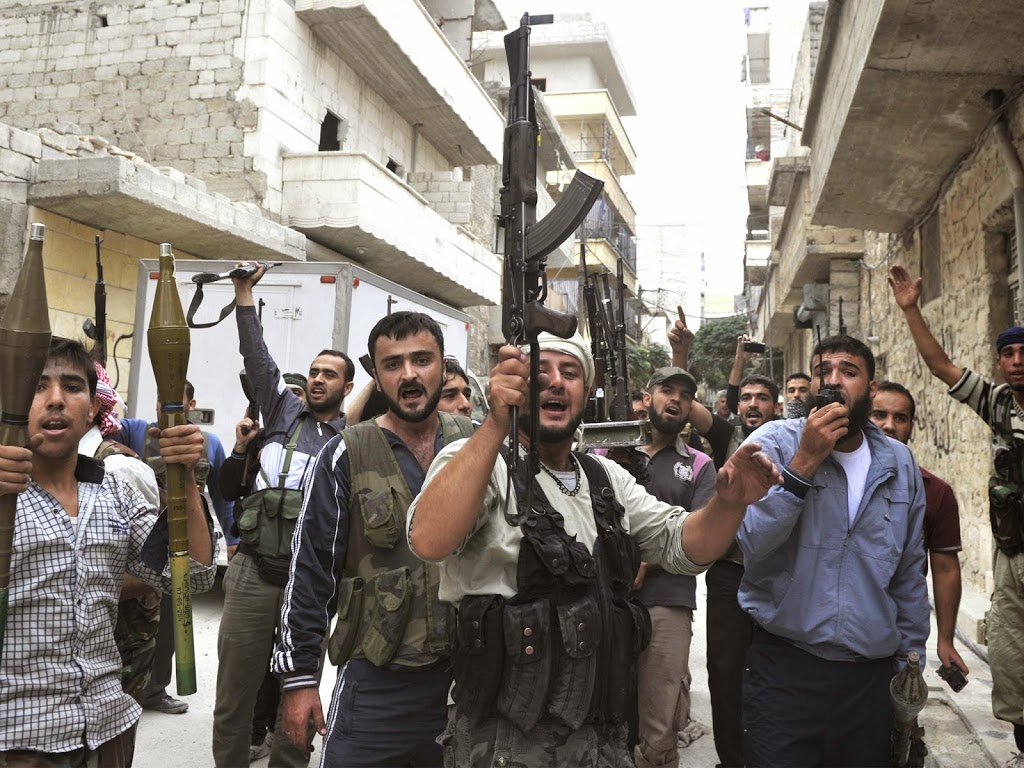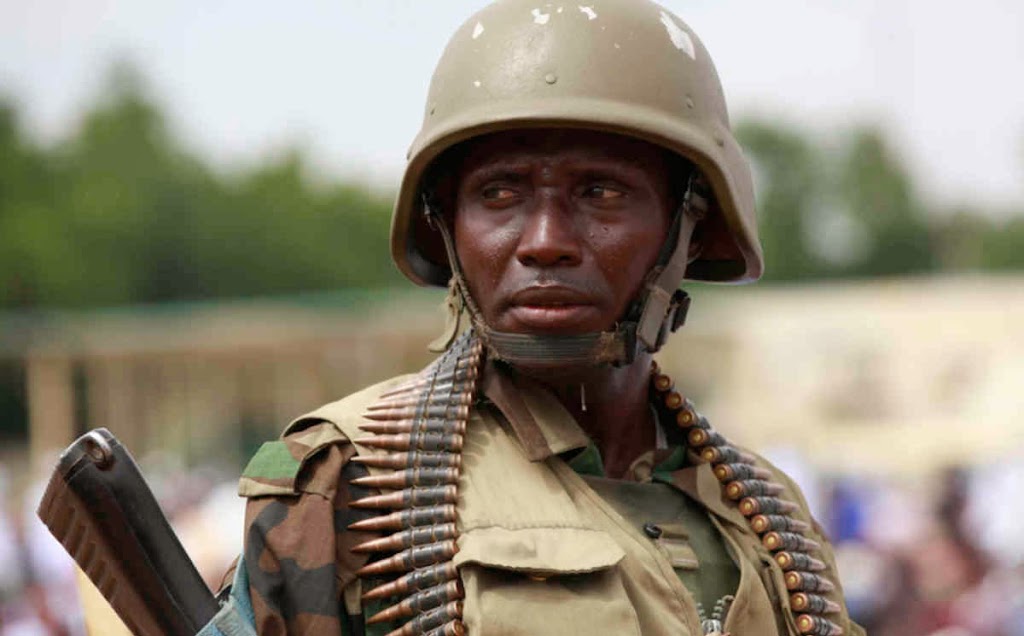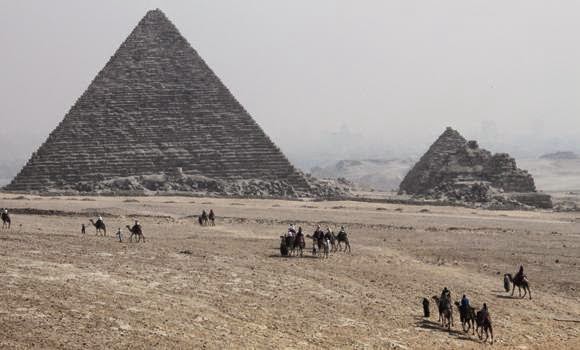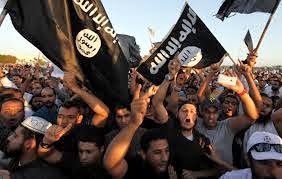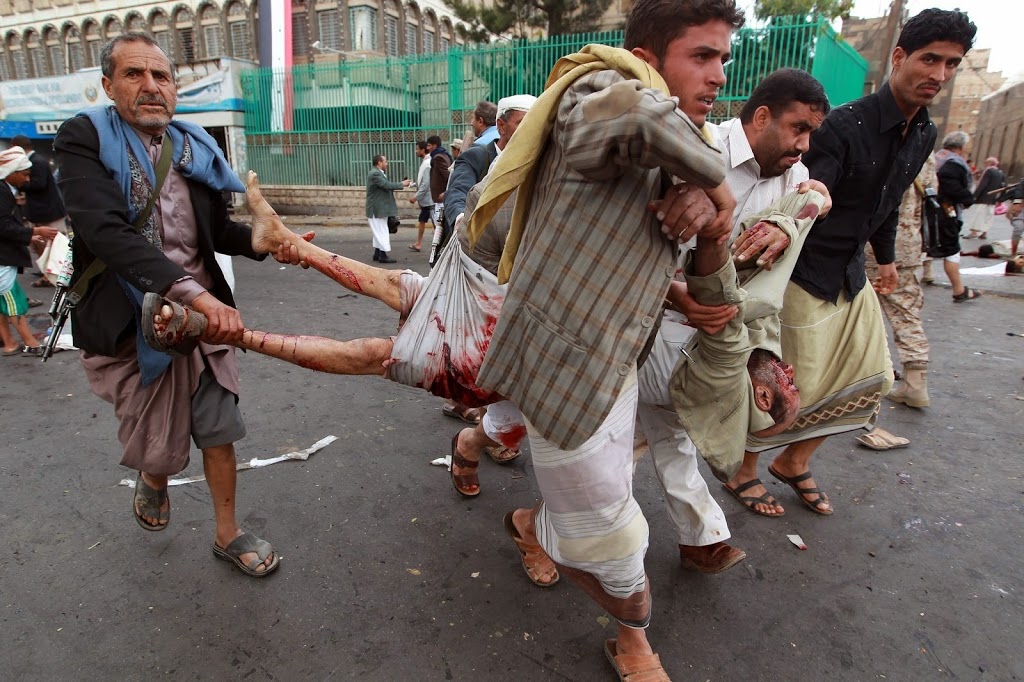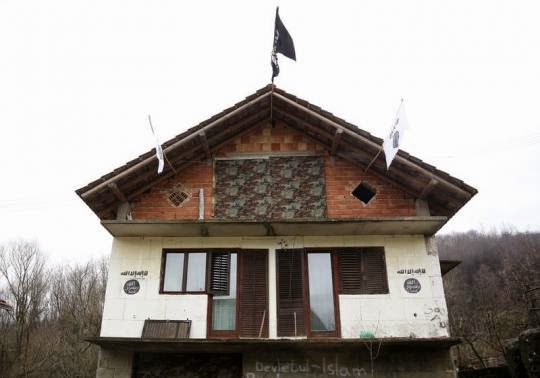Syria’s Nusra Front may leave Qaeda to form new entity
Leaders of Syria’s Nusra Front are considering cutting their links with al Qaeda to form a new entity backed by some Gulf states trying to topple President Bashar al-Assad, sources said.
Sources within and close to Nusra said that Qatar, which enjoys good relations with the group, is encouraging the group to go ahead with the move, which would give Nusra a boost in funding.
The exercise could transform Nusra from a weakened militia group into a force capable of taking on Islamic State at a time when it is under pressure from bombing raids and advances by Kurdish and Iraqi military forces.
It could also boost the influence of Qatar and its allies in the campaign to oust Assad, in line with the Gulf state’s growing diplomatic ambitions in the region. Qatari officials were not available for comment.
While it awaits the final word from its decision-making Shoura council, Nusra is not wasting time. It has turned on small non-jihadi groups, seizing their territory and forcing them to disarm so as to consolidate Nusra’s power in northern Syria and pave the way for the new group.
Intelligence officials from Gulf states including Qatar have met the leader of Nusra, Abu Mohamad al-Golani, several times in the past few months to encourage him to abandon al Qaeda and to discuss what support they could provide, the sources said.
They promised funding once it happens.
“A new entity will see the light soon, which will include Nusra and Jaysh al Muhajereen wel Ansar and other small brigades,” said Muzamjer al-Sham, a prominent jihadi figure who is close to Nusra and other Islamist groups in Syria.
“The name of Nusra will be abandoned. It will disengage from al Qaeda. But not all the Nusra emirs agree and that is why the announcement has been delayed,” said Sham.
A source close to the foreign ministry confirmed that Qatar wanted Nusra to become a purely Syrian force not linked to al Qaeda.
“They are promising Nusra more support, i.e. money, supplies etc, once they let go of the Qaeda ties,” the official said.
The Qatari-led bid to rebrand Nusra and to provide it with new support could further complicate the war in Syria as the United States prepares to arm and train non-jihadist rebels to fight Islamic State.
The Nusra Front is listed as a terrorist group by the United States and has been sanctioned by the United Nations Security Council. But for Qatar at least, rebranding Nusra would remove legal obstacles to supporting it.
FIGHTING ISLAMIC STATE
One of the goals of the new entity would be to fight Islamic State, Nusra’s main competitor in Syria. IS is led by Iraqi jihadi Abu Bakr al-Baghdadi, who helped create Nusra before falling out with Golani.
Once the most powerful group fighting Assad, Nusra was weakened when most of its commanders and fighters left with Baghdadi to form Islamic State. IS then killed many of Nusra’s remaining leaders, confiscated its weapons, forced its commanders to go underground and seized its territory.
But recently Islamic State has come under pressure from air strikes by a U.S.-led coalition. It has also lost ground to Kurdish fighters in Syria and to the Iraqi armed forces. But the group is far from collapse.
But if Nusra splits from al Qaeda, some hope that with proper funding, arming and training, fighters from the new group will be able to tackle Islamic State.
Jihadi sources said that Golani suggested to the group’s Shoura Council that it should merge with Jaysh al-Muhajereen wel Ansar, a smaller jihadi group composed of local and foreign fighters and led by a Chechen commander.
The announcement has been delayed due to objections from some of Nusra’s leaders who reject the idea of leaving al Qaeda. But this was seen as unlikely to stop Golani.
“He is going to do it, he does not have a choice. Those who are not happy can leave,” said a Nusra source who backs the move.
It seems Golani is already establishing the ground.
Nusra wants to use northern Syria as base for the new group. It launched offensives against Western-backed groups who have been vetted by the U.S. to receive military support.
In the northern province of Idlib it seized territory from the Syria Revolutionaries’ Front led by Jamal Maarouf, forcing him to flee. Last week it went after another mainstream group, Harakat Hazzm in Aleppo province, forcing it to dissolve itself.
The U.S. State Department said the end of Harakat Hazzm would have an impact on the moderate opposition’s capabilities in the north.
“Nusra had to pledge loyalty to Sheikh Zawahri to avoid being forced to be loyal to Baghdadi but that was not a good idea, it is time that this is abandoned,” said a Nusra source in Aleppo. “It did not help Nusra and now it is on the terrorist list,” he said.
Italian Carabinieri train 199 Somali police agents in Djibouti
The Carabinieri officially launched the Somalia 3 Italian training mission (MIADIT) a couple of days ago in Djibouti. The Carabinieri will train 199 Somali police agents, including 13 women.
The capacity building project was promoted in a bilateral cooperation agreement between the governments of Italy and Somalia and will be implemented by the Carabinieri in the bordering Djibouti, a small but strategically located former French colony at the mouth of the Bab el Mandeb Strait between the Red Sea and the Indian Ocean, where Italy has a military base.
This year’s training mission is the third one, after the previous ones held in 2013 and 2014. Training will be provided over a 12-week intensive course comprising basic training modules for police officers on the control procedures for both people and vehicles, basic investigative techniques, crime scene on-site evidence searching and finding procedures, in addition to the basics in human rights and international law.
The Somali police agents were given uniforms and learning materials by Italy and were subdivided into classes, which were subsequently assigned to their respective trainers, who will monitor them throughout the training period.
At the end of the course, the roughly 200 trainees will add on to the 350 already trained in the two previous cycles and who now carry out high-profile tasks thanks to their high level of training.
This year, the team of top-ranking trainers will again be under the command of Colonel Paolo Pelosi and the course will include two new specialist training modules, both theoretical and practical, for 40 members of the Djibouti national police.
The trainers belong to the Carabinieri’s Special Intervention Group (GIS), the Tuscania 1st Regiment of Parachuters, the Scientific Investigative Group (RACIS) and the Special Operating Group (ROS).
The final aim of the course is to facilitate the stability and security of Somalia and of the whole Horn of Africa region, focusing on capacity building in the territorial control and security activities of national police forces.
Chadian troops recapture Dikwa as new video shows beheading by islamists Boko Haram
Chadian troops drove out Boko Haram militants from the town of Dikwa in Nigeria, an army spokesman said on Monday, losing one soldier in the battle.
Qatari fatwa: destroy pyramids and Sphinx!
A fatwa from a Qatari-owned online portal has been widely circulated by Egyptian press this week after it called for the destruction of pharaonic monuments on the grounds that they are contrary to Islam.
The edict, issued by Islam Web, was picked up by several independent Egyptian news outlets, such as Youm 7 and Al-Fagr. It suggested the destruction of the historic monuments was a “religious duty” that Egyptians must fulfill.
But Egyptian newspapers carrying the story failed to notice the fatwa was first issued in December 2012. It has nevertheless sparked prime-time talk show discussions in Egypt.
The fatwa, which had been issued in response to a user’s question to the Islam Web’s administrator, had stated: “The demolition of the pyramids and the sphinx is a religious duty,” before referring to the monuments as “idols.”
Islam Web is affiliated to the Qatari ministry of endowments, with Doha’s government website advising users seeking online fatwas to “enter the official website of Fatwa Center on Islam Web.”
The portal has previously been under the radar following a fatwa issued in 2006 permitting the burning of people to death. The edict was titled: “The Burning of Ias bin Abdul Yalil by Abu Bakr” which visited a historic case study to conclude that burning people as a form of punishment is permissible.
But last month, the fatwa was reportedly removed from the site and retracted hours after Islamic State militants burned a Jordanian pilot alive.
Islam Web has also attracted controversy for issuing a fatwa that legitimizes insulting Christianity.
Source: arabnews
U.S. officials confirm Libya has become ISIS support base, safe haven
An unnamed U.S. intelligence official confirmed that there are a dozen-plus ISIS jihadists from Iraq and Syria operating inside Libya, but the U.S. lacks the “targeting authority” to go after them, reported Catherine Herridge on Fox News’s “America’s Newsroom.”
Moreover, counterterrorism sources told Herridge, chief intelligence correspondent for Fox News, that a new ISIS support base near the port city of Derna in eastern Libya is providing “tangible assistance” through training camps.
The new support base is supplying ISIS with an increasing number of Libyan jihadists to use as fighters in Iraq and Syria, explained Herridge.
She identified one of the alleged ISIS leaders in the North African country as Abdelhakim Belhadj, an al-Qaeda-linked Libyan national who was considered by the Obama administration and some members of Congress as a “willing partner” in the overthrow of Muammar Gaddafi in 2011.
“Now, it’s alleged he is firmly aligned with ISIS and supports the training camps in eastern Libya,” revealed Herridge.
“Critics say Libya’s new position as a safe haven for ISIS reflects one of the most significant policy failures of the so-called Arab Spring,” she added.
U.S. officials have expressed concern over ISIS’s expansion into Libya.
Director of National Intelligence James Clapper recently told the Senate Armed Services Committee that Libya is a “magnet” for terrorism.
“From an intelligence perspective, we, I think, clearly need to step up our game from an ISR [Intelligence, Surveillance, and Reconnaissance] perspective, where we can operate,” Clapper told lawmakers. “I think there’s a lot of merit to partnering with the French, who have sort of staked out their claim in the Sahel region of North Africa.”
Libya has been engulfed in unrest since Gaddafi was overthrown in 2011 with the support of the Obama administration. Various tribes, militias, and political factions are competing for power in the North African nation.
Some Libyan officials have warned that ISIS may use Libya to stage attacks against Europe, namely Italy.
The Italian Navy is patrolling the coast of Libya.
Two suicide bombers kill Houthi fighters in central Yemen
Two suicide bombers killed Houthi fighters in central Yemen on Tuesday, security sources said, highlighting volatility in a country torn by rivalries between political, tribal and sectarian groups.
No one immediately claimed responsibility for the attack but it resembled bombings conducted by Al Qaeda in the Arabian Peninsula (AQAP), one of the most militant groups that has been battling the Shi’ite Houthis since they captured its central Yemen strongholds last year.
The sources said at least 15 other members of the group, officially known as Ansarullah, were wounded in the attack on a youth centre turned into a militia outpost in the city of al-Baydah in central Yemen.
They said one of the two suicide bombers was shot dead by the Houthis when he opened the gate of the youth centre for the second bomber, who drove his vehicle inside the compound killing two militiamen and wounding 15 other people.
Violence has spread and intensified in Yemen since the Iranian-backed Houthis captured the capital Sanaa on Sept. 21 and fanned out south and east seizing traditional Sunni areas.
Yemen plunged deeper into political turmoil in January after the Houthis seized the presidential palace and forced the Western-backed President Abd-Rabbu Mansour Hadi and his government to resign.
Political factions have been in talks to try to find a way out of the crisis. The talks were complicated after Hadi fled the house arrest imposed on him by the Houthis in Sanaa and moved to the southern city of Aden, which is outside the group’s control, where he reclaimed the presidency.
Once an obscure religious movement in Yemen’s north seeking greater autonomy, the Houthis have established themselves as power-brokers and have sent their militiamen into the west and centre of the country, far beyond their traditional redoubts.
In a separate attack, three government soldiers were killed and two were wounded on Tuesday when a bomb tore through their patrol in al-Qatan city in the eastern Hadramout province, another area where AQAP operates, local media reported citing provincial officials.
Iran: the head of the Islamic Revolutionary Guard Corps “Naval exercise also ‘media-psychological’ operation”
Last week, Iran held multi-day naval exercises in the Persian Gulf in which a mock US aircraft carrier was attacked using a variety of missiles and speed boats.
The drills, named the “Great Prophet 9,” in the strategic Strait of Hormuz, was not only covered by Iran’s print and online media but also received extensive coverage on national television.
The head of the Islamic Revolutionary Guard Corps Mohammad Ali Jaffair praised the exercises, as did 220 members of parliament in a joint statement.
Thanking the national television, news agencies and newspapers for their coverage, Sharif claimed, “This is the first time in our exercises that a psychological and media operation was conducted within a military” context.
He wrote that Iran has conducted a number of drills, exercises and training missions before without sharing them with the media in order to prevent their “battle techniques and new weapons” from being exposed to foreign countries.
However, “under special conditions, with the request from the National Security Council and the General Staff of the Armed Forces of the commanders of the IRGC,” information can be shared with the public.
According to Sharif, in two of the three days of the Great Prophet 9 drills, “parts of the naval, ground and air capabilities” of Iran were shown. Given the tensions in the Middle East between Iran and regional countries, particularly Arab neighbors in the Persian Gulf, Sharif noted that the exercises was not aimed at them.
“The drill was designed on the likely scenario of the military behavior of non-regional countries and sworn enemies of Iran,” he wrote. At the moment, both the United States and France have aircraft carriers in the Persian Gulf.
Addressing the regional concerns and tensions with neighboring countries, Sharif clarified, “so that American psychological warfare does not become active in creating Iran-phobia within regional countries,” the operation used a replica of the type of aircraft carrier that regional countries do not have access to and only countries outside of the region use.
According to Sharif, the exercises sent a “clear and strong message” to Iran’s enemies to not continue their insistence that all options stay on the table. Western officials have repeatedly said during the nuclear talks with Iran and the possible collapse of the talks that all options are on the table, meaning including the military option against Iran.
Sharif added that the Great Prophet 9 military exercises “warmed the hearts of the people and the officials of the country, especially the nuclear negotiators, to defend the country’s rights with strength.”
According to Fars News, new arms were introduced in these exercises. IRGC Navy Commander Rear Adm. Ali Fadavi said, “The entry of this new arm has a very determining role in increasing our naval power to confront threats against the Islamic Revolution and more specifically the Great Satan America.”
Source: Al Monitor
Russia, Egypt agree on naval exercise in Mediterranean
Russia and Egypt have agreed to hold a naval exercise in the Mediterranean and an anti-terrorist exercise of their rapid reaction forces, the Defense Ministry’s press service said, according to TASS.
As it has been explained, Defense Minister Sergey Shoigu and the Egyptian Minister of Defense and Military Production Sedki Sobhi reviewed the results of military cooperation last year and considered the outlook for cooperation this year.
“The parties agreed to go ahead with the practice of inviting Egyptian military to Russian military exercises in the capacity of observers and also to hold a naval exercise in the Mediterranean and an anti-terrorist exercise of rapid reaction forces,” the Defense Ministry’s press service has said.
Shoigu invited his counterpart to delegate Egyptian military to the international army sports games and the forum Army-2015, to be held in Russia.
“The two men also discussed international and regional security matters,” the Defense Ministry said.
Sobhi arrived in Russia on February 28. On Wednesday, March 4 he will meet with Shoigu again at the first meeting of the bilateral commission for military-technical cooperation.
Salafi community in Bosnia denies links with Islamic State. And the black flags?
Salafi members in Upper Maoca village in northeastern Bosnia have denied allegations that they are connected with the Islamic State of Iraq and the Levant, or Daesh — the Arabic acronym for the militant group also known asISIL.
Upper Maoca, situated 25 kilometers from Brcko town and with a population of about 220 inhabitants, has become perceived by many Bosnians as a center for the recruitment of fighters seeking to fight on the battlefields in Iraq and Syria to support Daesh.
But many villagers told The Anadolu Agency they rejected the notion.
Villager Mersed Cekic said: “Anyone who knows Maoca is aware that we do not have an airport, bus station, railway station or port.
“What kind of miracle will fly people from Maoca to Syria?”
‘People misinformed’
Cekic criticized media in general for not adequately informing the public on current events.
He said: “Maybe people have been misinformed by media — where is coverage about the Croats who are traveling to Ukrainian battlefields or Serbs who are supporting the Russian army, or that of a Jew from Brcko who boasted on his website about killing Palestinian children?
“The media does not report much about all that.”
A force of special police raided the village on Feb. 5 after Federal TV published a video showing the Daesh flag and insignia flying from one of the houses in the village.
Villager Edis Bosni told AA: “We have no links with Syria and Iraq, except that they are our brothers in Islam and that we pray God to resolve their situation in the best, painless way.”
‘Great support’
Bosnic said the phenomenon of people traveling to foreign battlefields had been topical for centuries — not just now.
Bosnic stated: “It would be unfair to reduce it to one region or one nation. When Bosnia was at war, people were coming here supporting some ideology or what they thought was right.
“Serbs also had great support from Russians, Greeks, Bulgarians and other nations and Croats had support in Bosnia.”
Hajrudin Ribic from Upper Maoca said he had no information about those who had allegedly travelled to Syria and Iraq.
“I do not have any information of happenings in Syria and Iraq. Information available in the media, for me, is not credible because I do not trust the reports at all, nor those published on television or online,” said Ribic.
‘Devil in the house’
Cekic said Upper Maoca villagers did not have television sets in their homes.
He said: “That is why I do not have TV. Our opinion, according to Islam, is that it is the devil in the house.
“Why? Because children and adults will find immoral content on it.”
“Basically, Islam forbids ugly life. It prohibits vulgar life. It is known in Shariah what Allah has forbidden, and we preserve it. We try to stick to it in our homes with our families. And one of these devils is television,” said Cekic.
Other village inhabitant, Elvis Nukic, said the flag that was shown on TV had been deliberately planted.
“We do not represent extreme views. I think it was planted by those who do not live with us. They planted insignia and the flag. We have nothing to do with that,” said Nukic.
Source: aa.com.tr
- « Previous Page
- 1
- …
- 155
- 156
- 157
- 158
- 159
- …
- 268
- Next Page »
